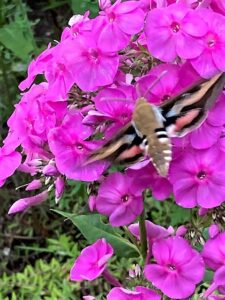Restoring Pollinator Gardens and Habitats
There is a crisis in the populations of pollinators and many other insects in this country and around the world due to habitat loss, pesticides, invasive species and global warming.

The goal of the Wildflower Pollinator Project is to educate others about this crisis and to offer information, resources, and simple, inexpensive ways they can effectively help turn the tide in this vital ecosystem. Central to this effort is the creation of pollinator gardens and the restoring of the habitats that sustain them. The inspirational key to this endeavor is in the use of the Wildflower Nursery Kits, a simple gardening method that produces an abundance of wildflower seedlings.
Wildflower Nursery Kits were developed by horticulturists who recognized and acted to address this increasingly urgent decline in pollinator populations by developing a simple and inexpensive gardening method. Kits not only protect wildflower seeds from being eaten and the damaging effects of global warming, they also produce an abundant supply of wildflower seedlings.



![]()
![]()
Using a kit, a small pinch of seed can yield 50 or more plants to expand an individual garden or for a community planting at a school, library or park.
![]() Kits are composed of 6 pots,
Kits are composed of 6 pots,  quality soil, wildflower seeds (Milk Weed. Bee Balm, Echinacea, Lavender Hyssop, Black-eyed Susan and others) and a 12″ x 14″ x 8″ wooden frame covered on one side with garden mesh.
quality soil, wildflower seeds (Milk Weed. Bee Balm, Echinacea, Lavender Hyssop, Black-eyed Susan and others) and a 12″ x 14″ x 8″ wooden frame covered on one side with garden mesh.

Kits supply protection from global warming by waiting for the freezing temperatures of winter to stabilize before putting the seeded pots outside, (sometime in early January), and by enclosing them in a mesh covered frames so they won’t be eaten by birds or rodents.
At present, the project has created 4 pollinator gardens in Putney, VT. They are located at the Putney Town Hall, the Putney Central School, the Putney Co-op, and the Putney Community Gardens. These gardens are on-going and will be expanded year by year, supplied by the seedlings cultivated by community members using Wildflower Nursery Kits. The project looks forward to making more pollinator gardens at local sites.


 .
. ![]()

So that this vital endeavor can be sustained and expanded, the project seeks to acquire funding, either through a grant, by becoming, or partnering with, a non-profit organization, or by donations.
Wildflower Pollinator Project endeavors is to inspire, aide and bring local individuals, organizations and businesses to work together with the goal of repopulating gardens and community landscapes with native wildflowers habitats.
It is vital that we help reverse the population crisis effecting all bees, butterflies, hummingbirds and many species of insects and creatures we know little about, but that sustain the natural world.


It takes a village to restore habitats and save pollinators.


